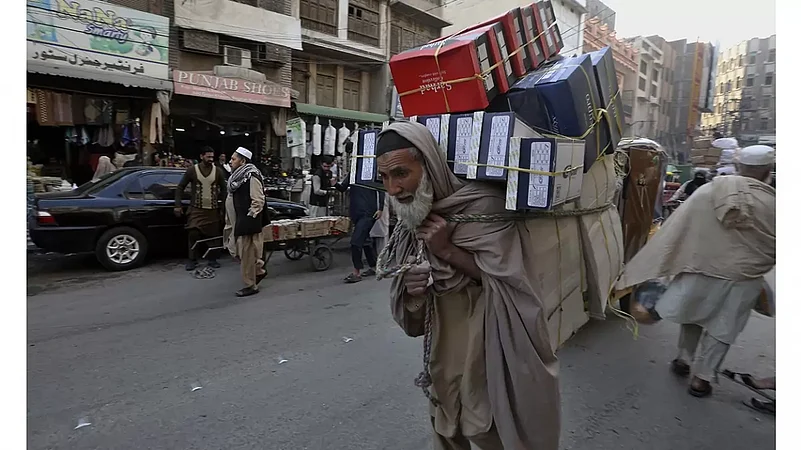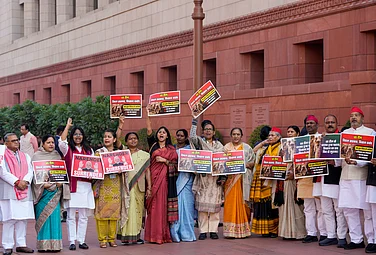Years of profligacy have brought Pakistan’s economy to its current sorry state with fears of default looming large unless the IMF loan comes through quickly. Negotiations with the IMF have continued for several weeks and the government keeps insisting the announcement will come soon. Meanwhile, China, Pakistan’s iron-clad friend is extending a helping hand.
According to IMF data, China holds roughly $30 billion of Pakistan’s $126 billion total external foreign debt. This is thrice its IMF debt ($7.8bn) and exceeds its borrowings from the World Bank and Asian Development Bank combined.
Reuters reported on Friday that the Industrial and Commercial Bank of China approved a rollover of a $1.3 billion loan. This is besides the $700 billion that the bank had earlier lent to Pakistan. The latest tranche of $1.3 billion comes from money that Pakistan had already paid the bank for a previous loan, according to finance minister Ishaq Dar. He has been roundly criticized by the Pakistan press for his incompetence and his earlier statements that he would not take dictation from the IMF. Many Pakistani analysts have hit out at him saying beggars can’t be choosers.
Governments as a rule hate to go to the IMF because of the tough conditions that are laid down by the Fund. The austerity drive to cut down costs results in cutting down public subsidies, raising prices that inflict great pain on people. This is a major worry for all democratic governments, especially those facing early elections like Prime Minister Shehbaz Sharif's current coalition. Pakistan has no option but to appeal to the IMF for a lifeline that can save the economy.
The situation is dire and the hardest hit, as always, are the poor and vulnerable. Pakistan incidentally had devastating floods last year to add to the woes of the common man. So much so that even tough taskmaster IMF managing director Kristaline Georgeiva, while calling for reforms, had asked the government to collect taxes from the rich and help the vulnerable. She wants Islamabad to stop giving tax evasion subsidies to the rich and ensure that subsidies reach the people who desperately need help from the government.
At nudging from the IMF, the Sherbaz Sharif government announced new austerity measures that the PM claims will save the exchequer nearly Rs 200 billion each year. The National Assembly earlier imposed taxes to raise an additional Rs170 billion.
Federal government ministers, advisors and assistants will not take salaries. Ministers will now have to pay for their water, electricity and gas. Luxury vehicles used by ministers would be auctioned and the money will go into government coffers. Government officials and ministers will travel economy class, both within the country and while going abroad. The Pakistan foreign office has been asked to close down certain missions and all government departments are to reduce expenditure by 15 per cent. Tea and biscuits will be served in offices and the usual lavish lunches and dinners are, for the moment, out.
Prices of essential commodities (and of everything else) are shooting through the roof. The consumer food index at the time of writing is at 27.5 per cent – the highest in 50 years. Kerosene, which the poor use for lighting and cooking, is at Rs 202.73 per litre, diesel at Rs 280 and petrol Rs 272 per litre. With the import of edible oils hit by dwindling forex reserves, ghee, according to the Vanaspati Manufacturers Association, is now selling about Rs 3 to Rs 5 higher for every kg. Prices before the latest hike were already high, with the low-grade ghee selling at Rs 500 for 900 grammes. The better quality local ghee and oil cost as much as Rs 3,000 for a five-kilo tin. More significantly, the price of atta, the staple food, has risen thanks to the massive floods that destroyed large quantities of crops. The wheat shortage has led to a kilo of atta costing between Rs 140 to Rs 160, 10 kg bags costing Rs 1,500, while a 20 kg bag comes for Rs 2,800.
According to the Pakistan press, half of the country’s industries have had to close down for lack of power. Those still producing are doing so at 40 per cent capacity, much below installed capacity. The Pakistan rupee has faced a 44 per cent devaluation since April 2022. International rating agencies have downgraded Pakistan's credit ratings seven times in the last year.
Politicians are as usual blaming each other. But the fact remains that all political parties, including the military dictators, have not bothered about structural reforms in the economy.
In many ways, Pakistan has had an easy run as funds were not a problem, thanks to the generosity of the US, Saudi Arabia and UAE as well as other Gulf nations. As a member of the CENTO (now defunct), Pakistan was part of the US lineup to combat Communism and the former Soviet Union. During the former Soviet occupation of Afghanistan, the US armed and funded the mujahideen fighters and used Pakistan as the conduit. Pakistan was flushed with US funds. Again, during the US and NATO war on terror in Afghanistan, Pakistan was the frontline state and got generous assistance on economic aid, as well as military aid. According to a 2019 survey done by the Jang Group and Geo TV, since 1947, America has doled out $70 billion to Pakistan under various heads. This includes generous amounts for curbing terrorism, and for health and education. The Pakistan Army has also been paid for logistical support during the war on terror in Afghanistan. The level of aid went up and down according to America’s geopolitical considerations, but the survey came up with a ballpoint figure of $70 billion till 2019. Pakistan was one of America’s largest recipients of foreign assistance.
Saudi Arabia and the Gulf sheikhdoms were equally generous but no country could surpass what America had given over the years. Pakistan’s strategic location was a boon to funding by the Americans, using it for the proxy war against the former Soviet Union.
Successive governments in Pakistan have not bothered about changing a system that is skewed. Structural reforms should have been done long ago when the situation was not so bad. The system was always skewed in favour of the country’s rich. The country is facing the brunt of not putting its house in order. The current crisis is an opportunity for Pakistan to clean up its book and begin on a fresh slate.



























